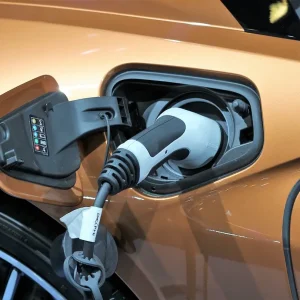Adrian Bewley is assistant vice president for business mobility at Enterprise Rent-A-Car
In the last 12 months there’s been a rapid increase in demand for hybrid vehicles, which has been matched by a growth in such vehicles in our fleet. Plug-in hybrids and pure electric vehicles are also growing in popularity, which is more context-specific due to range and infrastructure considerations. And one of the contexts that are proving very effective right now is car clubs.
This is partly being driven by a new approach to business mobility, as companies replace pool cars and grey fleet vehicles with employee car clubs for short business trips.
EVs work very well for short trips in urban areas where range is less of a concern. Many of our Enterprise Car Club corporate members work for start-up businesses and SMEs, are very open to environmentally friendly solutions and are happy to experiment in new technologies. As a result, we’re continuing to put pure electric vehicles (EVs) into our car club fleet and we often find that they’re the first to be booked.
Of course, car clubs are primarily located in towns and cities where recharging infrastructure exists. Many companies are also telling us that they want to trial electric and hybrid options ahead of the expansion of the government’s clean air agenda, which is resulting in the introduction of the Ultra Low Emission Zone in London as well as similar zones in other cities.
By comparison, range anxiety remains a factor for daily and longer-term rental, especially outside larger cities and in rural areas where the recharging infrastructure is less widespread. Businesses need to know that employees are equipped with familiar vehicle technology that can be easily refuelled.
However, many organisations are starting to explore longer-term use of EVs, both in commercial vehicles and passenger cars, and we are helping them to work through the variables to ensure cost-efficiencies are maintained.
Another factor is employee compliance. Most corporate travel policies now mandate low-CO2 cars, but employees need to be equipped with tools that help them to make these choices. So, for example, our online booking tool can ensure employees only rent vehicles below a certain emissions threshold.
Many years ago, even before car clubs, Enterprise’s first purpose in the life cycle of EVs was to act as a ‘shop window’, enabling people to try out new technologies. Car clubs are adding another opportunity, while more government funding and improved technology are making ultra-low emission vehicles more viable for businesses.
The electric revolution has been gradual and, like so many other motoring trends, driven by business use. Unlike other revolutions, it also co-exists with a range of other options, helping to empower employees when they need to stay mobile.





